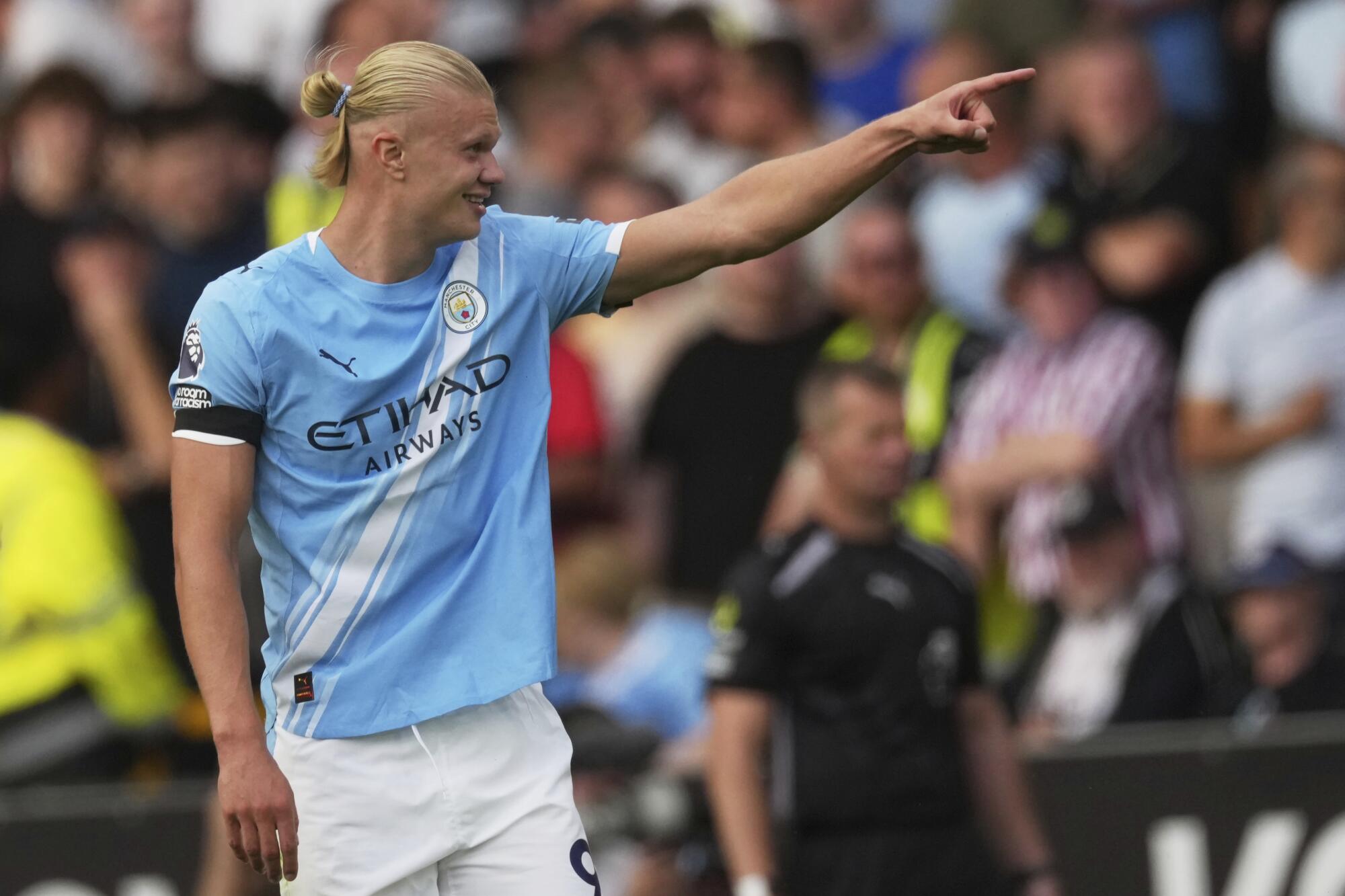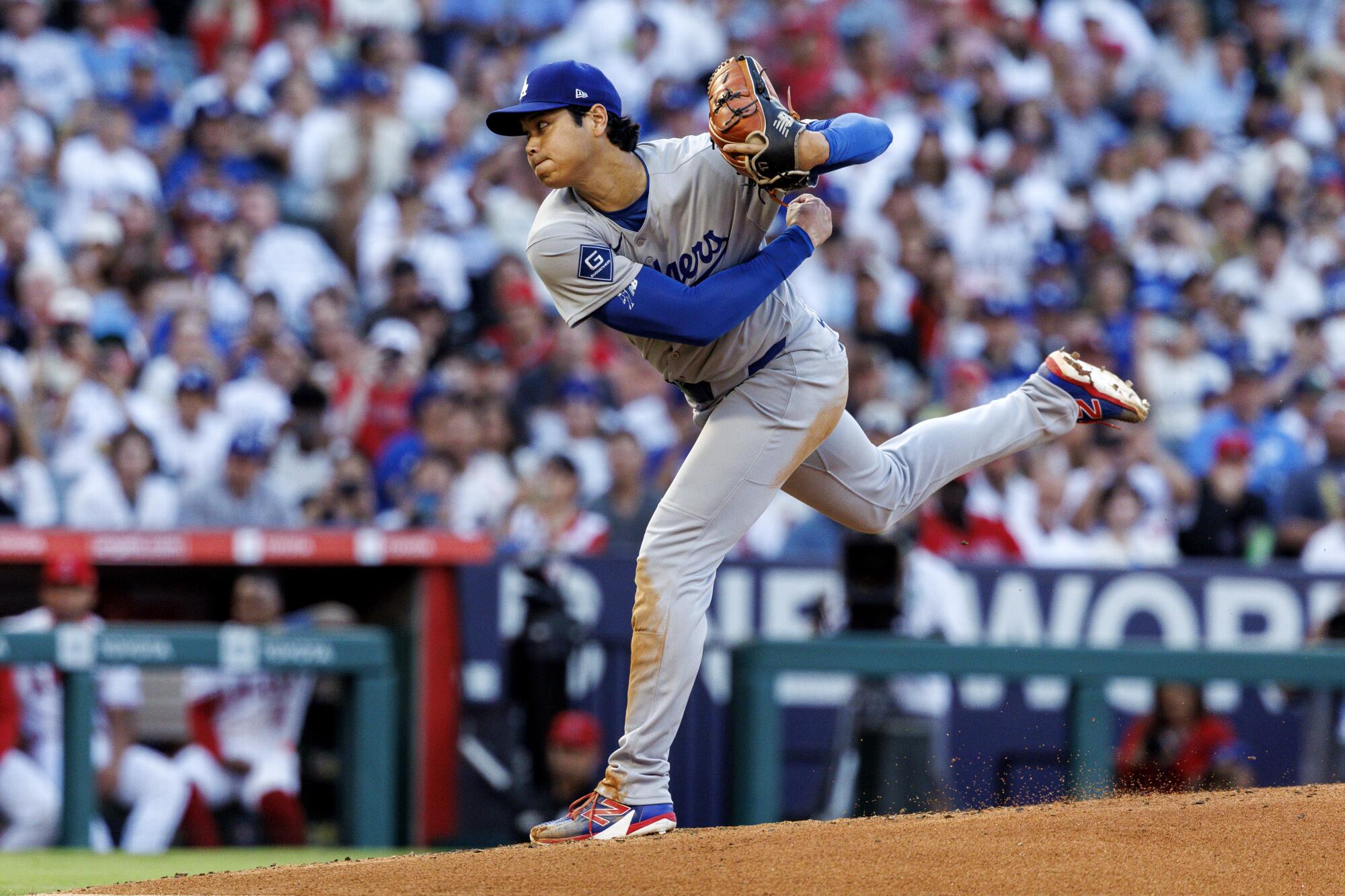Alan Shearer was in his prime and in the starting lineup for Blackburn when the English Premier League kicked off its first season 33 summers ago.
Shearer scored two goals that day in a 3-3 draw with Crystal Palace. But he had no idea that season would give birth to the most dominant force in the history of club soccer — and perhaps the most dominant force in the history of international sports.
“There’s no way anyone could have predicted back in 1992 that it was going to be this incredible, huge, gigantic force that it’s become,” said Shearer, who would go on to become the leading scorer in EPL history, of the Premier League. “It is sort of chalk and cheese in terms of where it was then to where it is now.”
That’s an English way of saying the league, which kicked off a new season Friday, has progressed.
International soccer is a sport ruled by money, and the Premier League became the best league in the world because it’s also the richest. Six of the 10 wealthiest teams in the world play in the EPL, where the average franchise value is $1.5 billion, according to Sportico. And the 20 teams combined to earn more than $8.5 billion in commercial revenue in 2023-24, according to Deloitte.
That’s allowed the EPL to outbid others for the top talent, resulting in deeper rosters and a level of play no other league can match.
Other leagues may have one or two better teams — France’s Paris Saint-Germain, for example, is the reigning European champion and Spain’s Real Madrid has won 15 continental titles, more than twice what any English club has won — but top to bottom, no league is as competitive as the EPL. That’s why its games are broadcast in 189 countries to a potential audience of 4.7 billion people, part of an international and domestic broadcast package valued at $5.1 billion a season, according to CNBC.
“It is where it is because of the interest and because of how many people want to watch it,” said Shearer, now a soccer pundit for the BBC. “We’ve got, without a doubt, a lot of the best players in the world. We’ve got the best atmosphere in the world. The finances are there.
“Basically everyone wants to be a part of it. And whilst that is the case, it’s only going to get bigger.”
It certainly didn’t start that way. The Premier League formed when English soccer was emerging from a low point that threatened to sink it. In the mid 1980s, hooliganism was rife, English teams were banned from European competition for five years following a deadly clash between Liverpool and Juventus supporters in Belgium, and the Football League First Division, the country’s top level since 1888, lagged well behind Italy’s Serie A and Spain’s La Liga in attendance and revenue. As a result, the best English stars, not to mention international talent, played elsewhere.
By 1990 the situation had gotten so bad, England’s top clubs — Manchester United, Arsenal, Tottenham, Liverpool and Everton, known collectively as the “Big Five” — had begun discussions to form a breakaway league that would have commercial independence, allowing it to increase revenue by negotiating its own broadcast and sponsorship deals.
Two years later, the Premier League debuted.
The revenue growth that EPL has enjoyed in the three decades since is well beyond the wildest dreams of the league’s founding fathers. And that’s turned around an exodus of top players out of England; now nearly three-quarters of Premier League players are foreign-born, among them Egypt’s Mo Salah, Norway’s Erling Haaland and Sweden’s Alexander Isak.

Manchester City’s Erling Haaland celebrates after scoring against Wolverhampton on Saturday.
(Dave Shopland / Associated Press)
But what has really made the Premier League great is its relative balance. Although just seven teams have won a title in the league’s 32 seasons, that qualifies as parity in Europe, where Bayern Munich has won 12 of the last 13 German championships, PSG has won 11 of the last 13 French crowns and just one team not named Real Madrid or Barcelona has won the Spanish league in the last 21 years.
In the Premier League, on any given weekend every game is in doubt. That competitiveness is why three EPL teams have won the UEFA Champions League since 2019 and in two of those three seasons, the European champion didn’t win the Premier League title. This summer Chelsea won the FIFA Club World Cup, making it arguably the best team on the planet, two months after finishing fourth in the Premier League table.
“One week the team at the bottom can beat the team at the top and that’s not a fluke,” said Shearer, who played for a Newcastle team that finished second in the EPL in consecutive seasons, then fell to 13th in each of the next two. “I don’t see that jeopardy in other leagues at all. That’s why the Premier League works and why the Premier League is the most watched.”
The challenge now for the Premier League is staying on top. When the EPL came into being, Serie A and La Liga were widely considered the best leagues in the world, winning a combined six Champions League titles between 1990 and 2000. But financial issues, tactical stagnation and a lack of investment in infrastructure combined to sink Italian soccer while La Liga became so top-heavy, with superclubs Barcelona and Real Madrid choking off all competition, that it became a league of two Goliaths and 18 Davids.
Shearer said there are lessons to be learned from those experiences.
“Every huge business has to evolve and keep going forward and keep improving,” he said. “The Premier League is no different. Since that very first day when I ran out for Blackburn against Crystal Palace to what it is now, there’s been improvement. Whilst the interest is there, whilst the finance keeps coming in, whilst we all want to watch, it is getting bigger and better.
“But yeah, you have to keep an eye on your competitors.”
⚽ You have read the latest installment of On Soccer with Kevin Baxter. The weekly column takes you behind the scenes and shines a spotlight on unique stories. Listen to Baxter on this week’s episode of the “Corner of the Galaxy” podcast.



